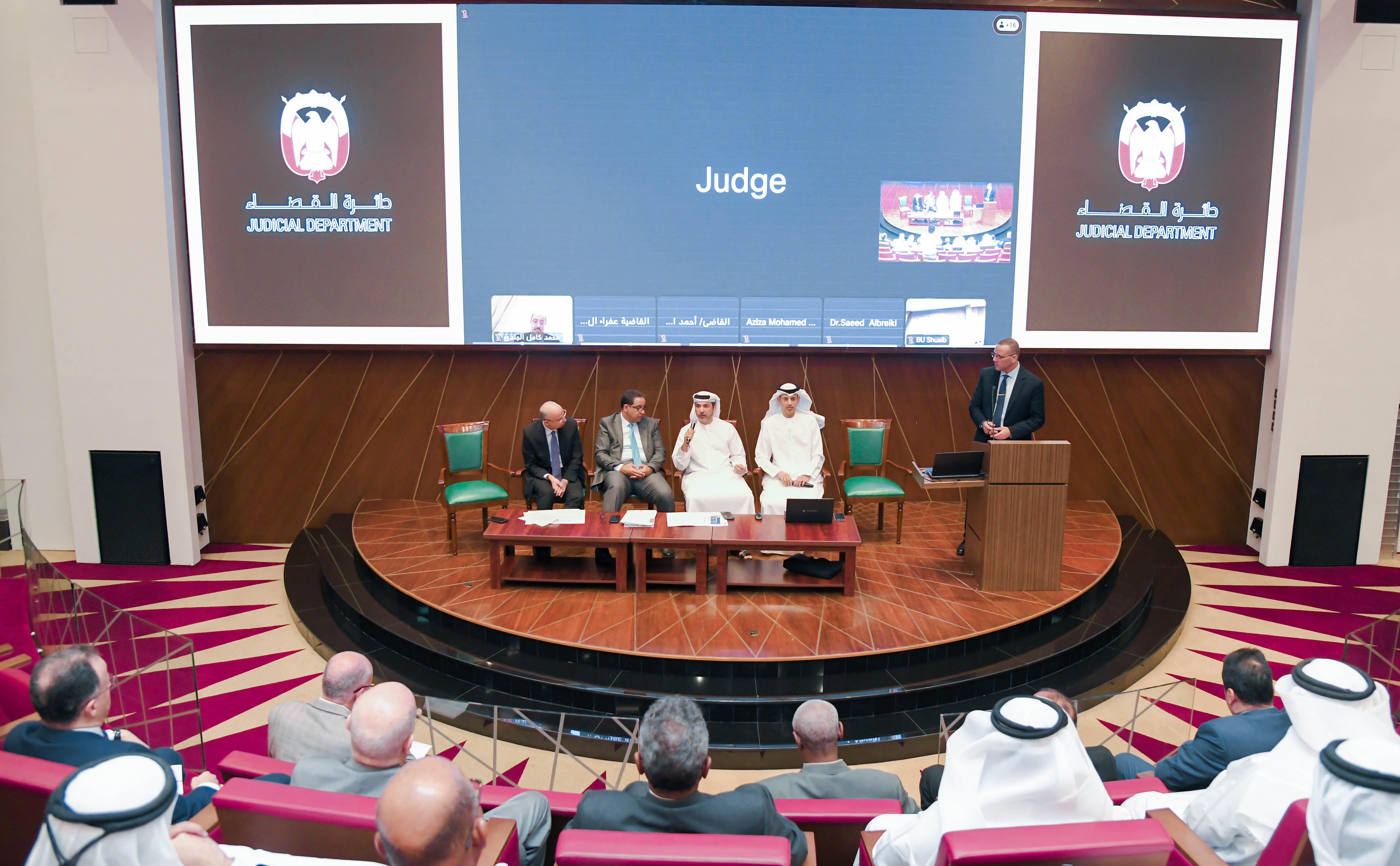The ADJD Discusses
Mechanisms for Implementing Amendments Introduced by the Labour Law and the Domestic
Workers Law
26 October 2023
The Abu Dhabi Judicial Department (ADJD) organised a seminar on "Mechanisms for Implementing the Amendments Introduced by the Labour Law and the Domestic Workers Law", with the aim of discussing the harmonisation of judicial practices so as to keep pace with the legislative developments that will come into force at the beginning of the year 2024.
This seminar is part of the ADJD's endeavours to consolidate the judicial principles that underpin an accomplished justice, in line with the vision of His Highness Sheikh Mansour bin Zayed Al Nahyan, Vice-President of the UAE, Deputy Prime Minister, Chairman of the Presidential Court and Chairman of Abu Dhabi Judicial Department, to establish a pioneering judicial system that is in step with all developments and changes, and in line with the Government's drive to enhance global competitiveness and leadership.
The seminar, moderated by Judge Abdulla Fares Al Nauaimi, President of Abu Dhabi Labour Court, and attended by Judge Ali Alhashmi, Vice President of Abu Dhabi Labour Court, Judge Mohamed Elgendy, Vice President of Al Ain Court of First Instance and a number of inspectors and members of the judiciary, also discussed the legislative amendments introduced by Federal Decree-Law No. 20 of 2023 Concerning the Regulation of Labour Relations and Federal Decree-Law No. 21 of 2023 On Domestic Workers.
The seminar reviewed the objectives of the amendments adopted and their impact on court cases, as well as the mechanism for considering decisions issued by the Ministry of Human Resources and Emiratisation before the court and concerning claims brought by one of the parties to the employment relationship, where the value of the claim in the dispute does not exceed the amount of 50,000 dirhams, or where the dispute relates to non-compliance by one of the parties with a previously issued out-of-court settlement decision, regardless of the value of the claim.
The participants also discussed the cases in which the executory formula is affixed to decisions and settlements issued by the Ministry of Human Resources and Emiratisation, the procedure for bringing the action before the Court of Appeal in the event of an objection and the means of considering such proceedings before the Court, starting with the case preparation until a judgment is handed down. They also discussed the time limits set by the Federal Decree-Law for bringing proceedings, the time limit for determining the case, the statute of limitation and the mechanisms for calculating working days. Also discussed were the type of claims that are brought before the court and the extent to which they can be amended, up to the notification of the respondent.
It should be noted that the Federal Decree-Law regulating labour relations and the Federal Decree-Law on domestic workers are likely to bring about a qualitative change by reducing case adjudication times and guaranteeing the quality of judicial decisions, ultimately achieving the objectives of the Judicial Department's strategic visions of achieving an accomplished justice that supports sustainable development, labour market stability and enhances the competitiveness of the Emirate of Abu Dhabi.
